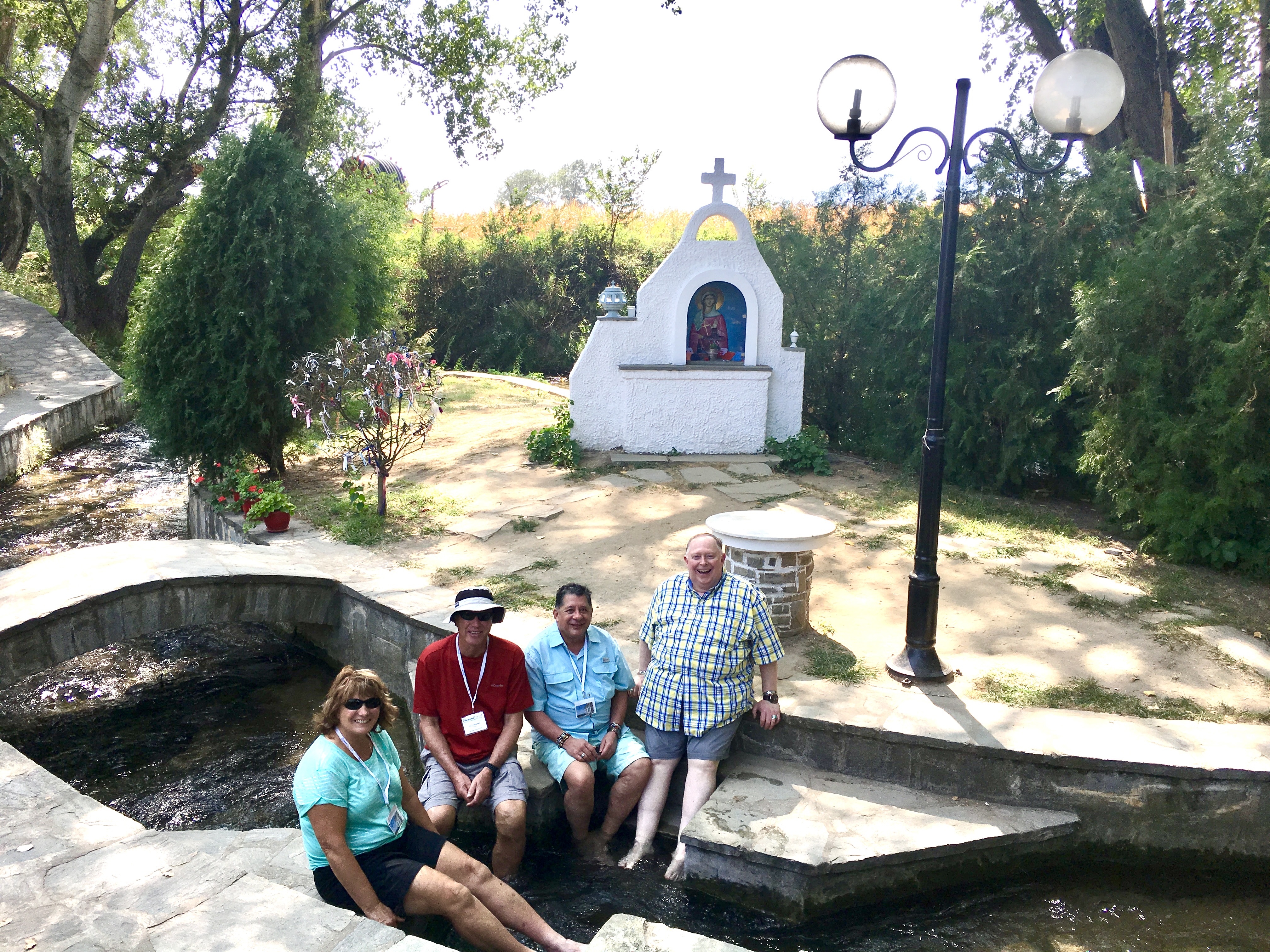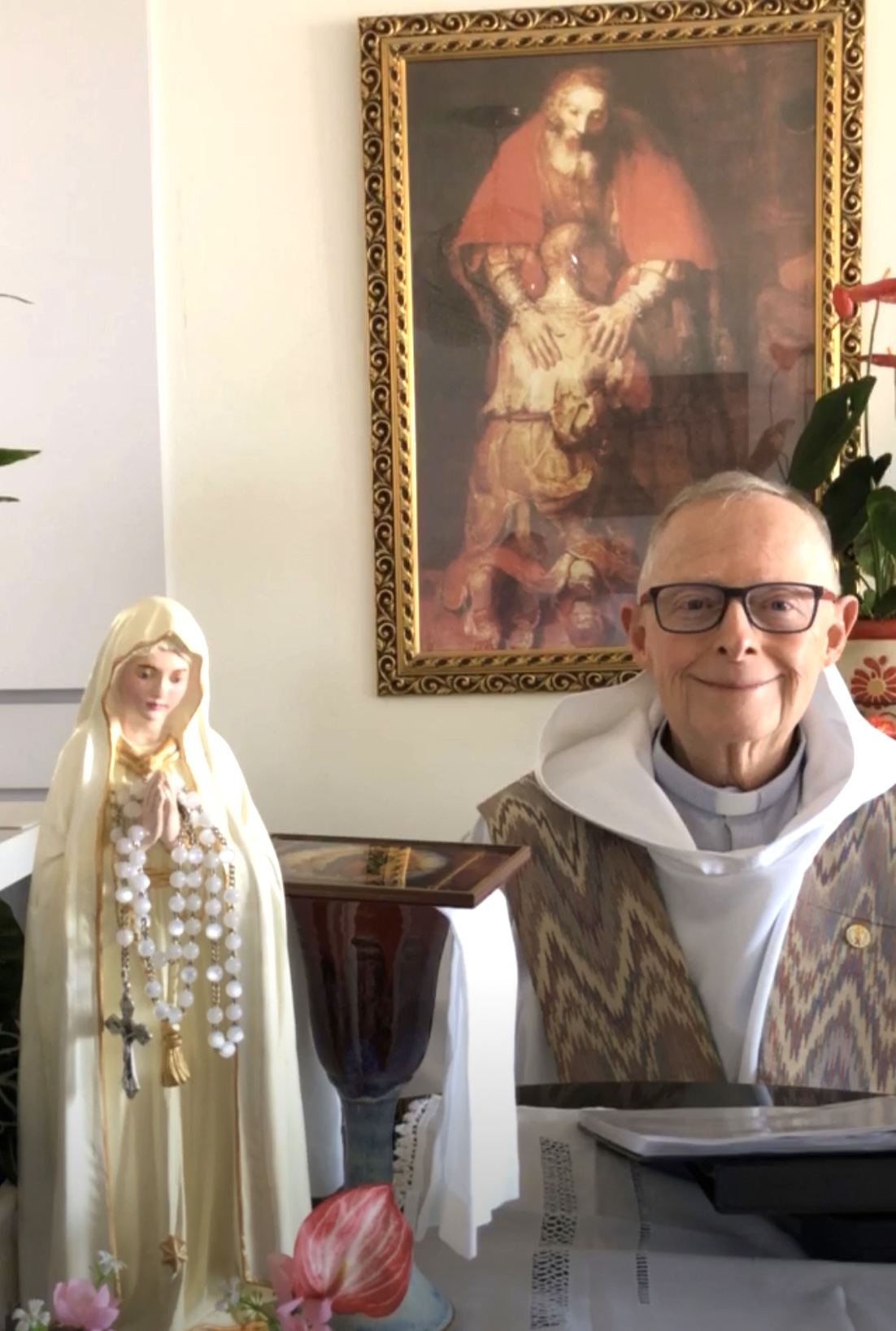These reflections are a result of more than 40 years of ministry as a Roman Catholic priest. Most of these years I spent in the Diocese of Charlotte which covers Western North Carolina. Now I am retired, and live in Medellín, Colombia where I continue to serve as a priest in the Archdiocese of Medellín.

Responsorial Psalm (Psalm 138)
R. Your right hand saves me, O Lord. Alleluia.
Your right hand saves me.
The LORD will complete what he has done for me;
your kindness, O LORD, endures forever;
forsake not the work of your hands.
R. Your right hand saves me, O Lord. Alleluia.
https://bible.usccb.org/bible/readings/051623.cfm
As the Psalmist joyfully proclaims that God’s mercy and kindness endure forever. God never abandons or forsakes us. We are the work of God’s hands. As Julian of Norwich (1343-1416) reminded the church 650 years ago: “All shall be well, all shall be well, and all manner of things shall be well.” As Julian says, “Love holds us fast and will not let us go.”

On the sabbath we went outside the city gate along the river where we thought there would be a place of prayer. We sat and spoke with the women who had gathered there.One of them, a woman named Lydia, a dealer in purple cloth, from the city of Thyatira, a worshiper of God, listened, and the Lord opened her heart to pay attention to what Paul was saying. After she and her household had been baptized, she offered us an invitation, "If you consider me a believer in the Lord, come and stay at my home," and she prevailed on us. (Acts 16:11-15)
https://bible.usccb.org/bible/readings/051523.cfm
The story of Lydia, the first believer in Europe, comes from one of the “We-sections” in the Acts of the Apostles. It reads like a diary. How important is the role of women believers in the early church! Today’s picture is from the outdoor chapel on the river near Philippi where Lydia was baptized.

Responsorial Psalm (Psalm 66)
R. Let all the earth cry out to God with joy. Alleluia.
"Let all on earth worship and sing praise to you,
sing praise to your name!"
R. Let all the earth cry out to God with joy. Alleluia.
https://bible.usccb.org/bible/readings/051423.cfm
Today we honor our mothers and all those who have mothered us in our lives, and our hearts are filled with joy. Saint Augustine, who was devoted to his own mother, Monica who had died, reminded his community: “We are an Easter people, and Alleluia is our song.” So Happy Mother’s Day—Alleluia, Alleluia!

During the night Paul had a vision. A Macedonian stood before him and implored him with these words, "Come over to Macedonia and help us." When he had seen the vision, we sought passage to Macedonia at once, concluding that God had called us to proclaim the Good News to them. (Acts 16:1-10)
https://bible.usccb.org/bible/readings/051323.cfm
Paul’s vision leads him to begin his ministry in Europe; the gospel is on the move! The visions of Our Lady of Fatima are not a part of public but rather private revelation which does not require belief. Unfortunately, very early on Fatima attracted the “conspiracy fringe” of the church. It would have been helpful if the Lady could have given us a heads up about conspiracy theories, the real vision of hell.

Upon their arrival in Antioch they called the assembly together and delivered the letter. When the people read it, they were delighted with the exhortation. (Acts 15:22-31)
Jesus said to his disciples: “This is my commandment: love one another as I love you.” (Acts 15:22-31)
https://bible.usccb.org/bible/readings/051223.cfm
The happy conclusion and reception of the “Council of Jerusalem” reflects a much later period in the life of the early church when the ”Gentile question” had long since been resolved. What we do know from the letters of Paul is that James and the Jerusalem community continued to harass the Gentile Christians and Paul over keeping Jewish Law, especially in regards to circumcision. Perhaps for good reason the Lord keeps reminding us: Love one another.



